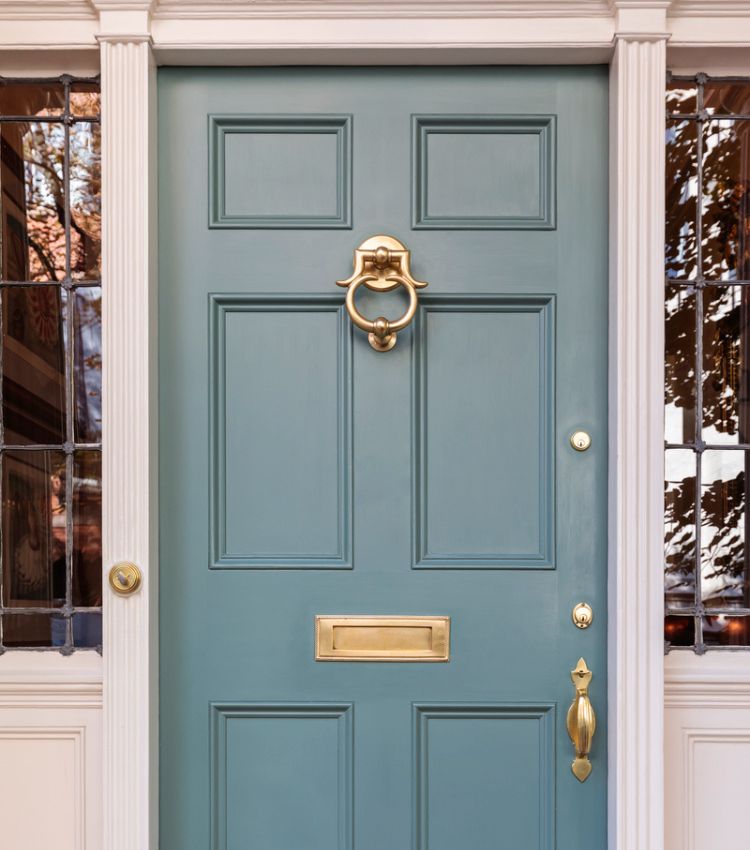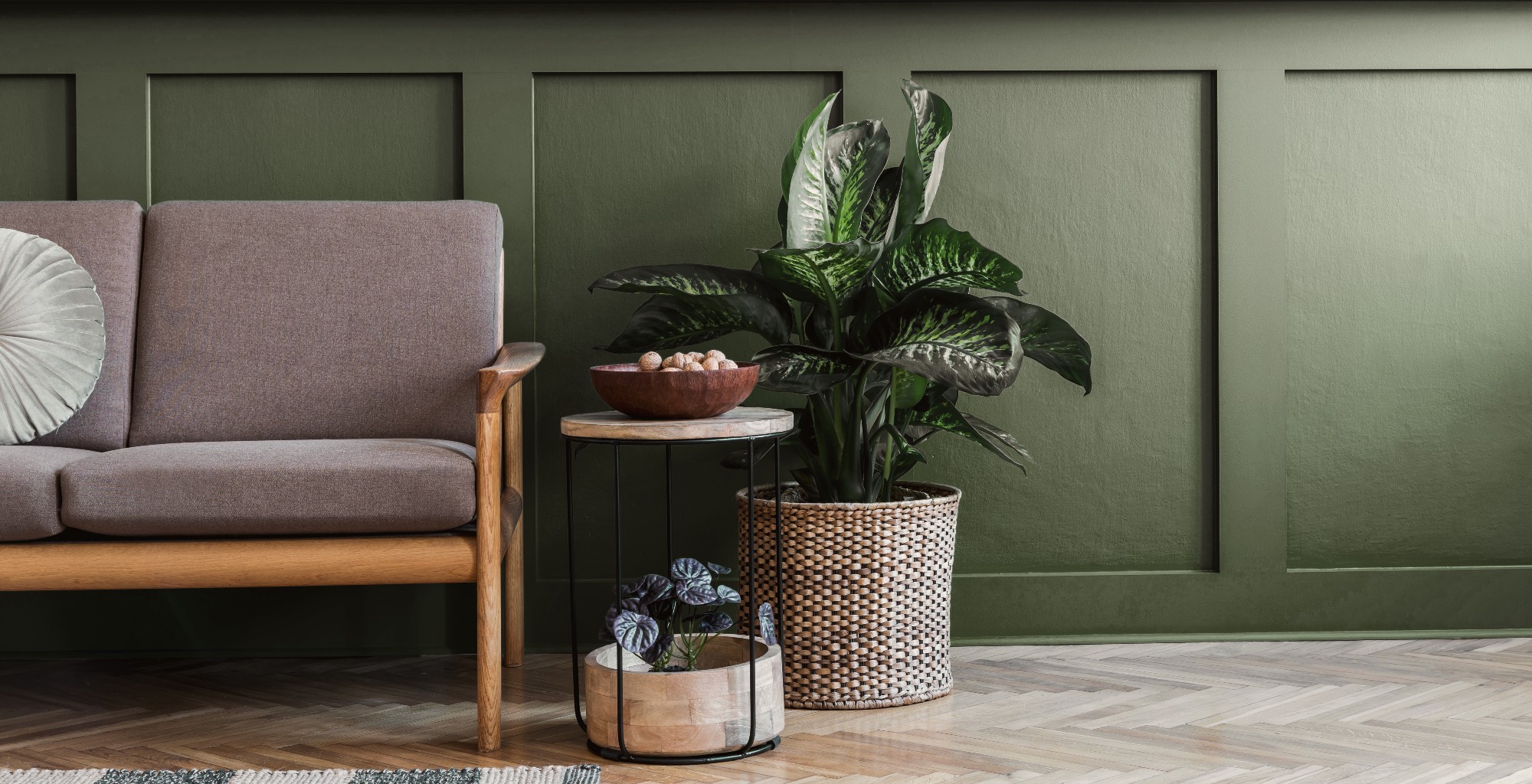For homebuyers seeking a blend of visual appeal and practicality, Arts and Crafts houses stand out as an exemplary...

Buying a smart home | Modern technology for properties
Are you considering buying a smart home? This article will share the types of technology you can hope to find or choose to install, the best providers and the challenges and solutions of owning and living in a smart home.
Prestigious homes are now built with meticulously planned systems that allow the owners to have total effortless control over their property, with many smart technologies leading to more energy-efficient homes.
But what are the options when buying a smart home?
Technology continues to evolve, with some of the most modern technology including artificial intelligence systems that can run a home.
In a few years’ time the technology we are impressed by today will most definitely be old hat.
Understanding smart homes
Smart homes utilise the latest technology to enable home automation. By incorporating smart home technology, homeowners can manage various aspects of their living spaces remotely or through automated systems.
These innovative solutions provide convenience, efficiency, and enhanced security by integrating devices and appliances with wireless connectivity. As a result, understanding smart home functionality helps users maximise the technology’s potential and transform their homes into modern, interconnected environments.
Home automation
One of the most basic requirements within a luxury home is an automated system. The home automation system will typically be able to control the climate, lighting, entertainment and appliances and in some cases extends to basic security systems.
Usually ran from one central hub the system will connect to user-friendly interfaces such as tablets, wall-mounted terminals or even mobile phone applications.
Whilst technology is always developing the current level of intelligence in these systems is already impressive. Appliance control within a smart grid can, for example, take advantage of high solar power output in the middle of the day and choose this time to run the washing machine.
Some systems have been built specifically for pets and will monitor their whereabouts within the house and control their access to different areas of the property.
Smart kitchen technology and connected cooking allows users to manage their coffee machine, fridge and even the oven remotely.
There are a few companies which have garnered a positive reputation in the smart home space including Creston Home Automation.
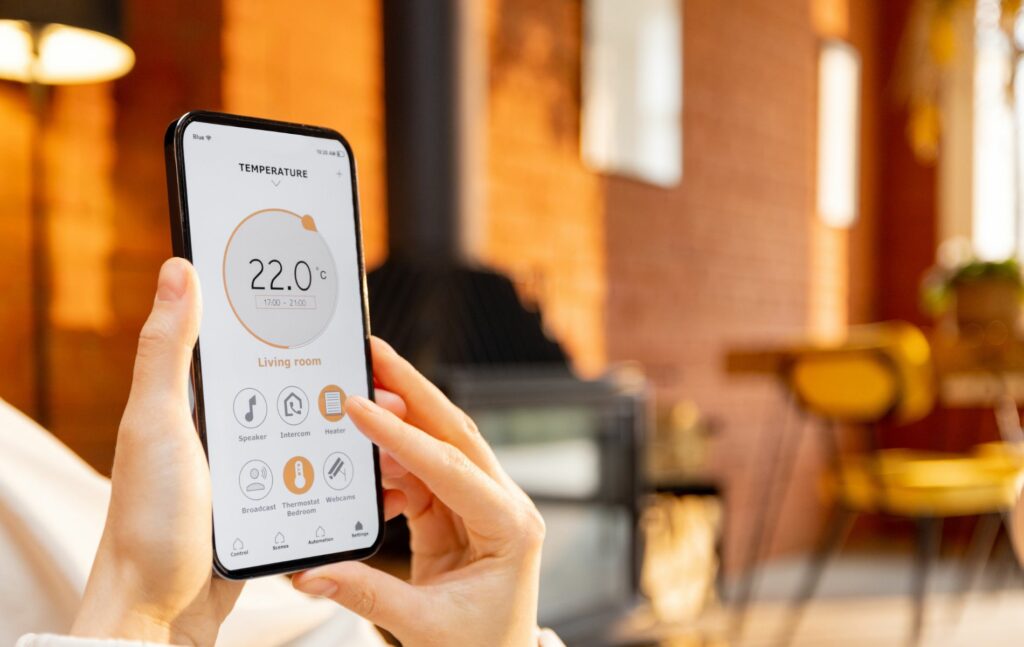
Smart home devices
There are a number of smart home devices that can be installed to improve automation and comfort.
Smart lighting
Smart lighting systems can be far more energy efficient, systems such as Lutron allow you to use the right amount of light for the room, using dimmers as part of a smart system. The same company also create shading solutions which can help optimise the natural lighting in the home and reduce heating or cooling costs.
Smart thermostats
Smart thermostats help maintain the desired temperature in your home. They connect to smart home systems for easy control and increased energy efficiency. Some leading options include Google Nest Learning Thermostat and Samsung SmartThings.
Home sound systems
The top sound systems can now be integrated into every room in the house, whether you want the same music played throughout your property or individual sounds in each room. The sound systems are usually installed as part of a larger home automation system meaning it can usually be controlled from the same user interface.
Sonos sound systems have long been regarded as one of the best, the combination of multiroom and streaming functionality allows you to have excellent quality sound in every room, all controlled from a smartphone or tablet.
Smart speakers are central to many smart home systems. They offer voice control, integrating with popular virtual assistants such as Alexa, Google Assistant, and Siri. Key players in this market include Amazon Echo, Google Nest Audio, and Sonos One.
Home cinemas
Home cinema systems have seen advancements in technology, certain systems allow you to choose the film on an app whilst you’re out and have it ready to play on the screen when you return home. The picture and sound quality available in home cinemas is now equal to that of the very best cinemas.
Kaleidescape are renowned for their impressive cinema systems, bringing homeowners the ability to play movies from their system with pristine audio and video quality including 4K Ultra HD. Their players and servers which can be integrated with modern AV control systems to create a real cinematic experience in the comfort of your own home.
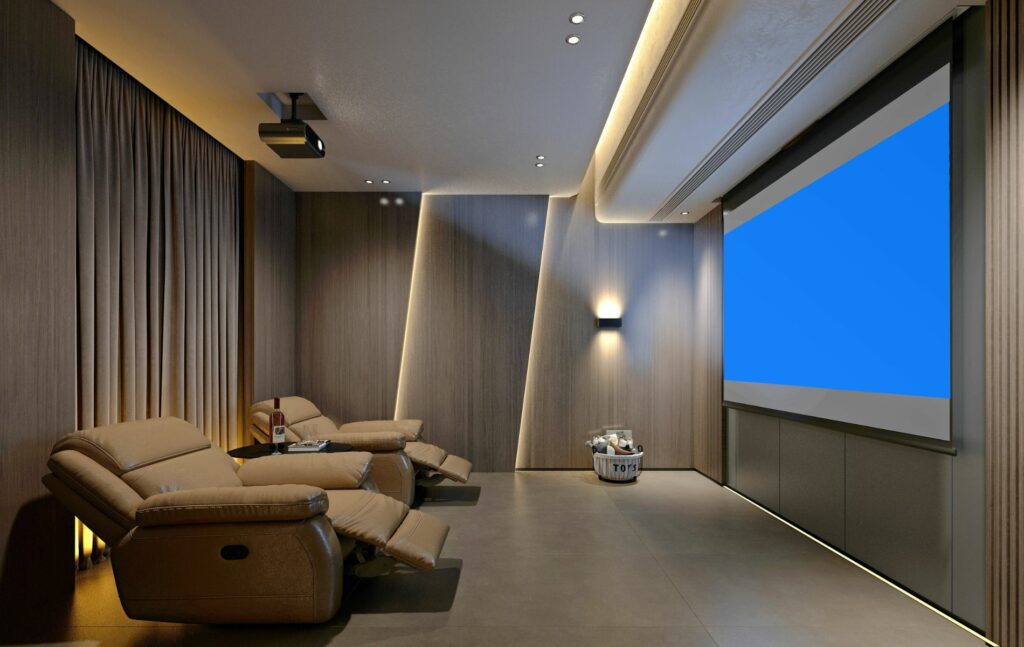
Home security systems
From intelligent security lighting and cameras to automated door and window locks, home security has evolved to provide homeowners with the ability to completely remotely control their property.
The mainstream market has seen high technology security become more accessible with systems such as the Ring doorbell which connects with a resident’s smartphone to let them know someone is at the door via video link.
Extending beyond the front door, it is now reasonably easy to set up security cameras throughout your home which can all be monitored via smartphone or tablet applications.
As well as cameras, some smart security systems include sirens, motion detectors, door locks and even sensors that can detect when a door or window has been opened. Most security companies recommend installing deterrence devices such as a siren and security lighting as a front-line defence for your home, if you’re considering buying a smart home security package perhaps find one that has those functionalities.
The appeal of smart home security over traditional burglar alarms is the ability to quickly monitor your property via an application rather than paying an external party, it’s also usually possible to install smart home technology yourself – although if you’re not super tech savvy it might be worth paying an expert to ensure it’s done correctly for your home to be secure.
Video doorbells
Smart video doorbells provide an extra layer of security by allowing you to see and interact with visitors without opening your door. Popular choices include the Ring Video Doorbell and EZVIZ DB1C Wi-Fi Video Doorbell.
Security cameras
Smart security cameras offer remote monitoring of your home through your smartphone or smart home system. Some top picks are Arlo Pro 4, SimpliSafe Home Security System, and Vivint Smart Home. From smart locks to smart light bulbs, these devices enhance home security and convenience.
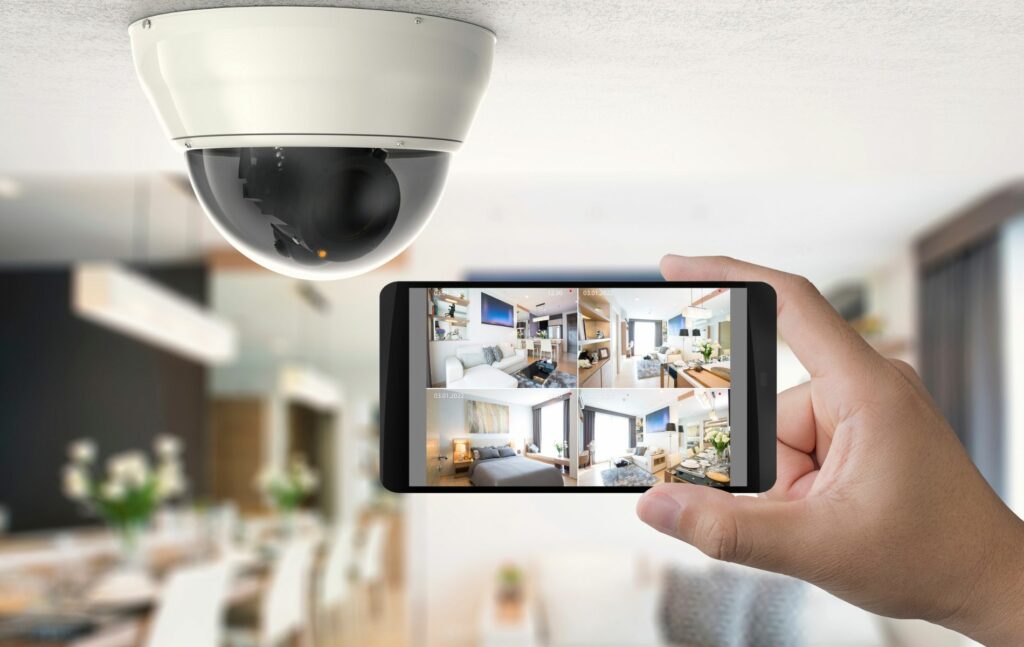
Smart home technology
Whilst you can now fully automate your home to create an entirely smart space, many would prefer to simply install certain smaller elements.
How much smart technology you wish to have in your home is up to you, it might be that you simply want a smart thermostat which allows you to remotely control your heating.
From security cameras to surround sound there are many items available – we recommend conducting thorough research and if you’re unsure you can employ the services of a smart home installation company to do it all for you.
Considerations when planning to install smart technology
Smart technology relies heavily on WiFi, so it’s wise to ensure you have a strong network throughout your home. Find any spots that it’s difficult to connect to the WiFi from and install technology to fix it to ensure you can make the most of smart devices throughout your property. It might be that a mesh WiFi system, such as the one sold by Linksys, might be the best solution for your home. If you’re planning to use one, a smart home installation company or home automation installer would be able to advise you of the best solution for your property.
Using smart home devices
Control via apps
Smart home devices can be controlled via apps on your smartphone, tablet, or PC (Android or iOS). They connect to your home Wi-Fi or use Bluetooth for communication. This allows users to manage their devices efficiently.
Control via software
Some smart home devices offer proprietary software or support third-party platforms like IFTTT (If This Then That). This enables users to automate tasks and integrate different devices for a seamless user experience.
Voice commands
Voice control assistants such as Google Assistant, Alexa, and Siri allow users to control smart home devices using voice commands. They can perform functions, listen to commands, and provide feedback, offering a hands-free interaction with the devices.
Brands and compatibility
When considering a smart home purchase, it is essential to understand the compatibility between different brands and ecosystems. The three main players in the smart home market are Google Assistant, Samsung SmartThings, and Apple HomeKit.
Google Assistant offers compatibility with a wide range of devices and brands, such as Philips Hue lighting and Sonos speakers. Samsung SmartThings, on the other hand, focuses on integrating various devices into their ecosystem, including Zigbee-enabled products.
Apple’s HomeKit is another popular choice for smart home enthusiasts, offering seamless integration with Apple devices and compatibility with selected brands like Philips Hue. It is of utmost importance to research and confirm compatibility between chosen devices to ensure a smooth smart home experience.
Investing in smart home
Investing in smart homes is becoming increasingly popular among homeowners, as it offers the potential to save money on energy bills and provides added convenience.
A survey conducted in 2023 revealed that 86% of house buyers would consider purchasing a smart home.
Smart energy devices are a key driving factor behind this trend, with 50% of people searching for them in the UK, indicating a growing concern around the cost of living and environmental impact.
Although some potential adopters face barriers such as data privacy concerns, the benefits seem to outweigh the drawbacks for the majority of consumers. UK homeowners and businesses can make a wise investment in smart homes, as this market continues to expand in 2023 and beyond.
Challenges and solutions
Learning curve
Smart homes can be confusing, especially for first-time users. To overcome the learning curve, start with simpler devices like Google Home Max for voice control and gradually incorporate more complex systems.
Power outage and UPS
Power outages can affect heating and Wi-Fi connectivity in smart homes. An uninterruptible power supply (UPS) helps prevent system disruptions during unexpected outages, ensuring maximum comfort and safety.
Privacy concerns
Privacy is a significant concern for smart homeowners. To ensure data safety, install security features like encrypted networks and create strong passwords for all connected devices. Always update software with the latest security patches.
Buying a smart home
When purchasing a smart home system, compatibility is crucial. Ensure the chosen devices work well together, especially with popular AI assistants like Alexa. Research various brands, and select reliable vendors to avoid functionality issues.
Take into account customisation options, such as controlling temperature and lighting settings via smart hubs. Consider user-friendly guides to assist in the installation process.
Remember, a smart home aims to improve convenience, efficiency, and security, so choose devices that align with specific needs and preferences.
If you are looking for a property to buy and feel that a professional property finder might be able to assist with your search for a smart home please contact us for a no obligation discussion regarding your property requirements and our services.
